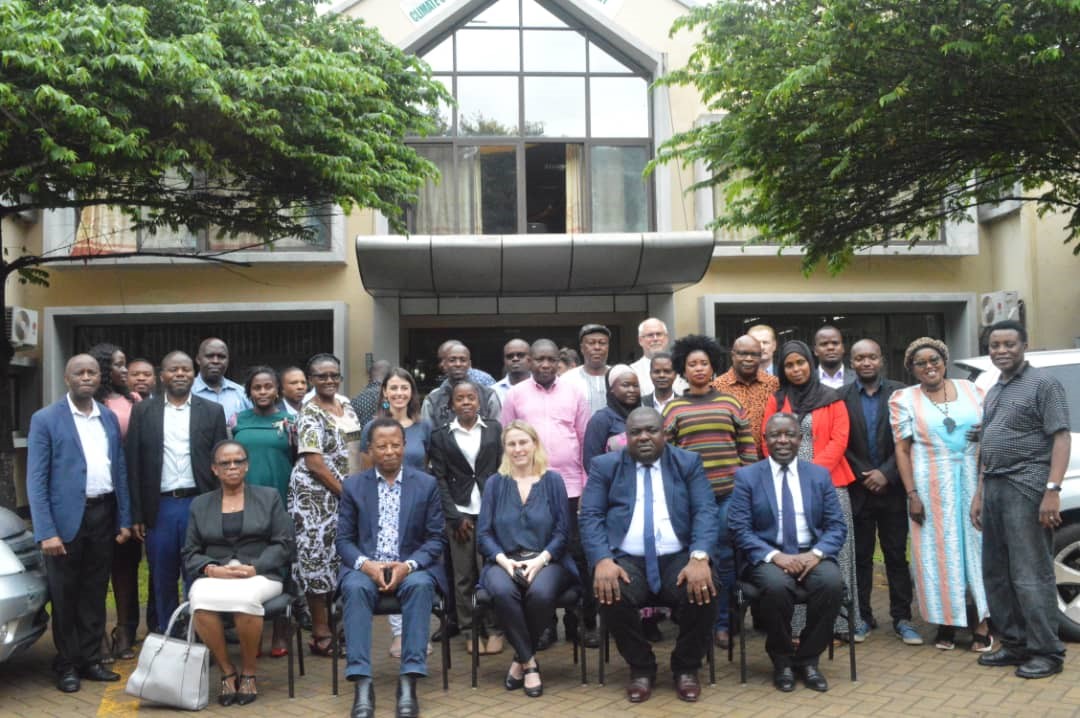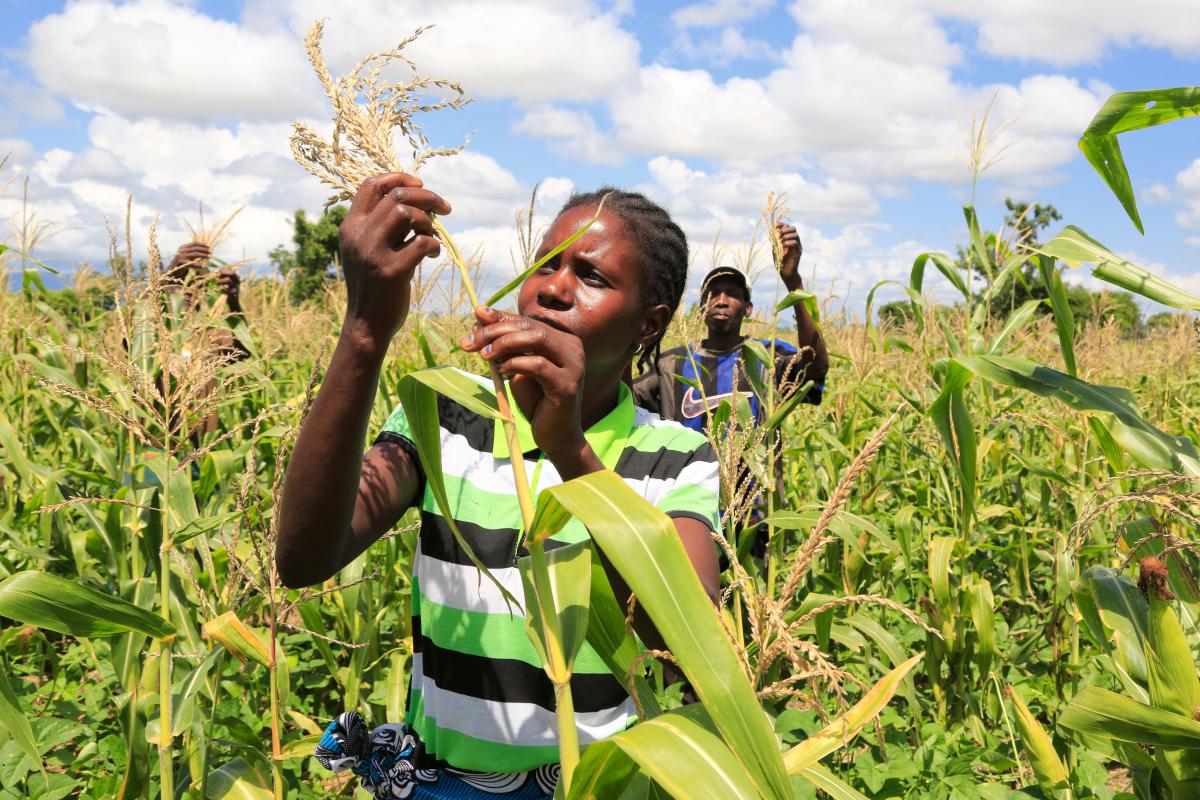Launch of SUSTAIN Pro
Transitioning to sustainable food systems is vital to staying within planetary boundaries, feeding a growing population and combatting climate change. Today IUCN launched SUSTAIN Pro, a 10-year initiative aimed at addressing livelihood inequality, ecosystem degradation and agricultural challenges in key growth corridors in Tanzania and Mozambique.

Photo: IUCN
The programme will be implemented in the Southern Agricultural Growth Corridor (SAGCOT) of Tanzania and the Beira Agricultural Growth Corridor in Mozambique. In Tanzania, the programme will operate in the Kilombero and Ihemi clusters with the SAGCOT Centre as strategic partner. SUSTAIN Pro builds on the achievements of SUSTAIN Phase I, implemented in both countries from 2014 to 2019.
The inception meeting of SUSTAIN Pro, which took place in Morogoro, Tanzania on 24 February 2022, aimed at launching SUSTAIN formally, gathering the key implementing partners, and introducing the project to institutions and policy-makers for implementation. The event sought to develop a shared understanding with partners of the role and scope of SUSTAIN and obtain strategic input from key stakeholders for action. The meeting brought together over 40 delegates representing government, development partners, civil society organisations, private sector, academia and the media.
Speaking at the launch of SUSTAIN Pro, Ms. Mary Maganga, Permanent Secretary of the Tanzania Vice President Office, said: “Agriculture is not only negatively impacted by climate change, but is in itself one of the major contributors of greenhouse gas emissions nationally and globally. Sustainable food systems present us with the opportunity to transform agriculture into a solution for addressing challenges posed by climate change through adaptation and mitigation actions. Realizing sustainable food systems requires active involvement of all stakeholders including farmers, consumers, development partners, private sector and civil society in the centre of production and supply chains.”
SAGCOT's chief executive officer Mr Geofrey Kirenga remarked that “our vision of a transformed, commercially viable agriculture sector that enhances food security, improves livelihoods and ensures environmental sustainability is founded on the sustainable food system approach. By embracing sustainable food systems, Tanzania will be able to deliver food security and nutrition for all without compromising current economic, social and environmental bases to ensure meeting current food security and nutrition needs and that of future generations.”
 Photo: ©ADPP
Photo: ©ADPP
“Access to sufficient, safe and healthy food is an essential prerequisite for human well-being and economic development. Which is why NORAD is investing in sustainable food production and transforming food systems. By partnering with IUCN on SUSTAIN Pro, we expect to scale up successful and climate resilient agricultural practices in Tanzania and Mozambique, contributing to the Government of Tanzania’s food security and agricultural goals” said Ms. Ingvild Langhus, Senior Adviser, Section for Food at the NORAD Department for Climate and Environment.
“A sustainable food system is underpinned by well-functioning ecosystems. Transitioning to a sustainable food system requires conviction, knowledge as well as political commitment and community participation. To deliver on sustainable food systems, we will need to build evidence, engage stakeholders, design innovative solutions and develop mechanisms for enabling and incentivizing sustainable food pathways”, said Charles Oluchina, IUCN Regional Programme Coordinator for Eastern and Southern Africa.
SUSTAIN Pro is funded by the Norwegian Agency for Development Cooperation (NORAD) with the Tanzania component having an initial budget of USD 2.5 Million. The initiative will benefit smallholder farmers, local communities, agri-businesses, small and medium enterprises, national industry associations, growth corridor secretariats, as well as public authorities involved in land use planning, agriculture and water resource management.
***
SUSTAIN website: www.sustaininitiative.org
For further information, please contact:
Doyi Mazenzele, IUCN Tanzania: Doyi.Mazenzele@iucn.org
John Nakei, SAGCOT Centre Ltd: J.Nakei@sagcot.co.tz
Yassin Bakari Mukwizu, Royal Norwegian Embassy: Yassin.Bakari.Mkwizu@mfa.no
Claire Warmenbol, IUCN Communications and Partnership Manager: claire.warmenbol@iucn.org



